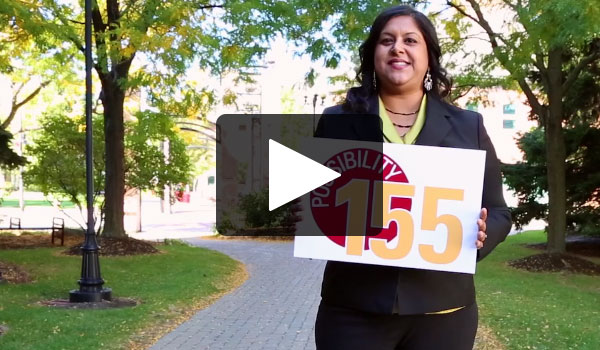The United Nations (U.N.) has had a great effect on the lives of millions of people throughout the world, and Anjali Sahay, Ph.D., is one of them, but perhaps not in the way you might expect.
“I did not pick the U.N., but it picked me,” Sahay, associate professor of political science, said. “My father’s brother worked for the United Nations Development Programme in India and his stories really inspired us, but it was in the background. I focused on my academic side, and became a professor.”
Sahay studied history at Delhi University in her home state in India, but coming to the U.S. in 1999, she chose to study international relations at Old Dominion University (ODU) in Norfolk, Virginia, where the U.N. re-entered her life.
“As a doctoral student, I was assigned a research assistantship with ODU’s Model U.N. program. The yearly trip to U.N. headquarters in New York was the highlight of my life,” she said. “To be there for four days every year was amazing and opened a lot of new horizons. I was blown away with the U.N. and with the Model U.N. program.”
That enthusiasm stayed with her. As an adjunct at ODU, she taught a U.N. class and was appointed assistant director of the Model U.N. program. And not surprisingly, when it came time to apply for a permanent faculty position, Sahay said, “the U.N. came to my rescue.”
Sahay turned down a tenure-track position in Boston— “Who does that,” she laughed— in favor of a visiting professorship at East Carolina University in Greenville, North Carolina, drawn by its large and vigorous Model U.N. program.
She came to Gannon in 2008 and, rather unusually for someone with a Ph.D., enrolled in Gannon’s MBA program. “I thought it might be useful in my research. I even thought I could teach international business,” she said.

View how Anjali inspires the possibilities at Gannon.
She now teaches political science classes, Introduction to U.S. Government, Introduction to International Relations and history classes. As director of the International Studies program, she used funds provided by Gannon’s Barker Globalization Institute to redesign an existing class as Global Migration, Population and Health, which is now a Liberal Studies Capstone course.
She also served on the committee that formulated the 2012-16 Strategic Plan where she advocated for the goal of developing a worldview. “I don’t think Gannon needed to be sold on globalization because President Taylor had that as part of his vision when he was provost,” she said.
Sahay is still an advocate, serving as president of Faculty Senate this year, and she is still involved with Gannon’s Model U.N., the most venerable Model U.N. program in the U.S., over which she assumed leadership in 2010.
The annual gathering just concluded, attracting 430 high school students from three states. The conclave just after the U.S. elections was an unusually lively one, and Sahay, a political scientist with a global orientation, was happy to stimulate the debate.
“I think the election has thrown us off our comfort zones and brought forward questions we need to address about how global we are and want to be, and to consider if globalization is reversible,” she said. “Personally, I think the fabric of society today is too global to be rolled back.”